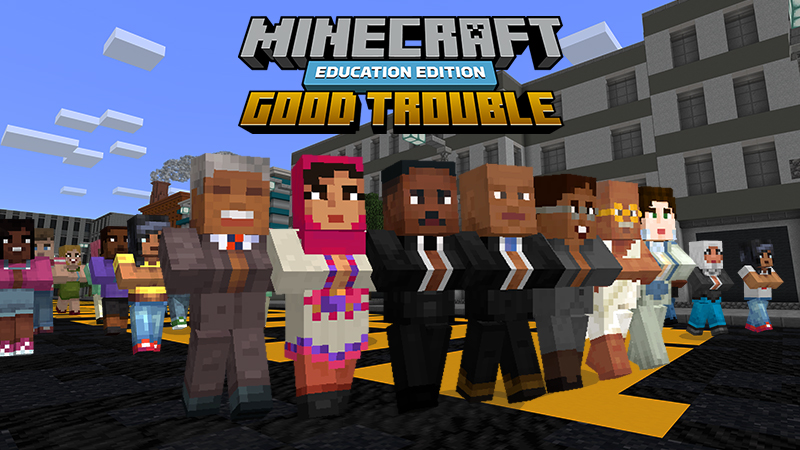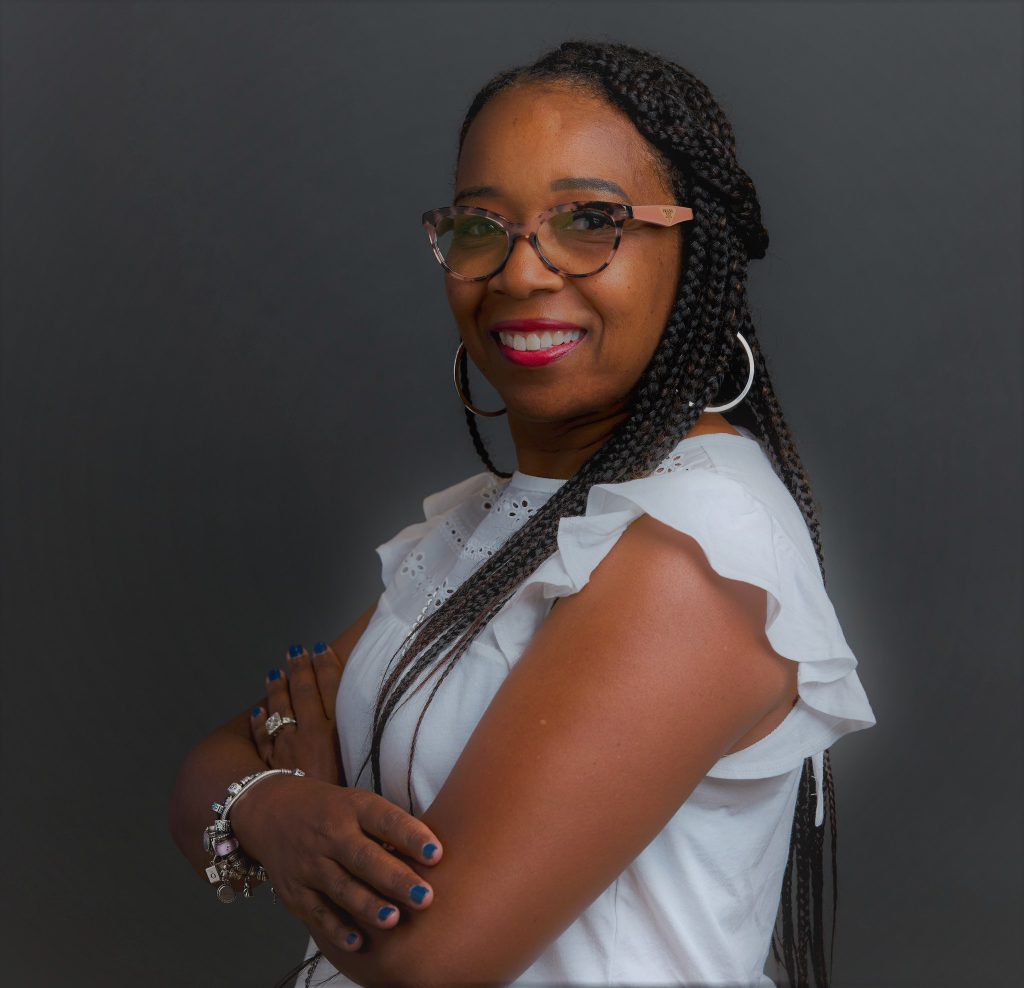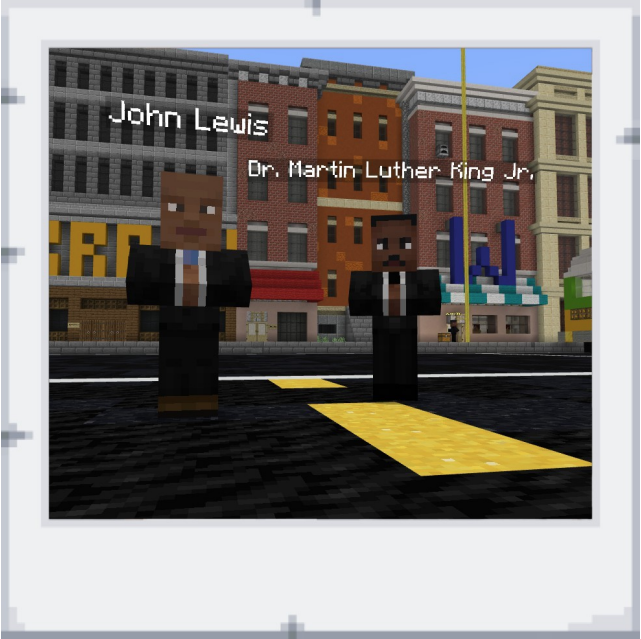
[hr]
![]()
Jackson State University alum Felisa Ford was recently featured in Time Magazine for her project, “Good Trouble”’ a civil rights video game designed to engage the user in an immersive gaming experience that teaches them about the history of social justice and civil rights.

“Good Trouble,” a part of the education edition of the popular 3-D game Minecraft, has now become one of the most globally downloaded video games within the Minecraft community.
Ford shares that her interest in social justice was birthed during her undergraduate years at JSU, where she majored in political science. Upon graduating, she became a social studies teacher working within the Atlanta Public School District and eventually went on to serve as the K-12 social studies coordinator.
“My foundation at Jackson State really fosters my love for wanting to go deeper in this area [political science], and so I became a teacher,” said Ford, “I became a digital learning specialist in 2015 in APS, and this is where my passion took off because I saw how I could use technology to impact learning at a deeper level for students.”
As a digital learning specialist, Ford was able to integrate her passion for technology and social justice. With the untimely passing of George Floyd, a Black man murdered by a Minnesota police officer during an arrest, Ford found it necessary to inform youth about the circumstances they witness and how they can become a part of the shift toward social equity and justice.
When creating “Good Trouble,” Ford worked closely with Minecraft developers to design a video game that educates children on how the social justice movement shaped the world, applying the late U.S. Rep. John Lewis’s customary phrase, “Good Trouble,” as the guiding mantra and title of the game.
“This was an opportunity to bring this content into a format that children could understand and could be received. We wanted the students to know that we may all look different, but we all bring value, we all have stories to tell, and we all have words,” said Ford.

In the world of “Good Trouble,” Lewis guides students through periods where other leaders from marginalized communities stood up for justice. With this unique set of resources, Ford said she and the Minecraft team believed educators could become equipped with the tools to respond to learners curious about social justice and have a conversation about it.
“We didn’t want it to just be about the Black Lives Matter movement because we knew it was so much bigger,” shared Ford. “The purpose of these lessons was to amplify the voices of people of color. We wanted the students to take away that these were ordinary people who did extraordinary things by standing up for the rights of others.”
The game is composed of several different independent lessons on social justice explored within one virtual world. Accumulating over 3 million downloads as of May 2021, “Good Trouble” was Minecraft’s most downloaded educational world.
“Based on the number of downloads that we’ve had globally, it just tells us that there’s a need for content like this and that people are receptive to it,” said Ford. “Students desire educators to teach this type of content in a manner that students can receive and in a game base where they don’t realize how much they’re learning because they’re playing Minecraft.”
Ford shared that the novelty of the video game, along with the timeliness of the creation, was positively received with teachers as far as Pakistan, who utilized parts of the lesson plans for instruction. With Ford and the Minecraft team left stunned at the global seismic impact, they understood now that the appetite for knowledge is present, but it is up to creators to provide the platform to learn.
“Our hope was that students would be able to open their minds and gain empathy and understanding for others. If you have a friend being mistreated, it’s okay to stand up for that friend,” said Ford. “We hope that students gain the lesson that you can stand up for someone in so many different ways.”






